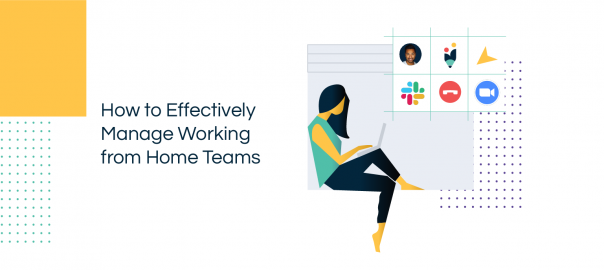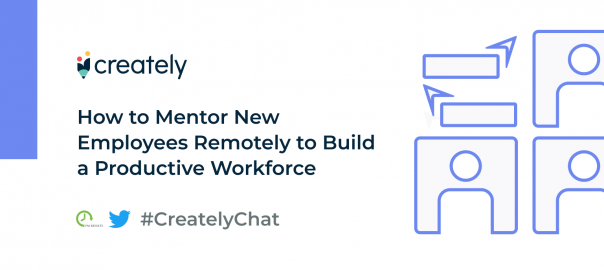Jacob was only 35 when he was diagnosed with acute depression. He was promoted a year back and was leading a team of developers. His career was on the rise. He had more reasons to cheer at home – he had a lovely wife and two beautiful kids. Things had never been better!
Life took an ugly turn when Jacob started doing longer hours at work. As manager of his team, he had to ensure they completed tasks on time while meeting stringent deadlines.
Jacob soon started dealing with a lot of stress. He found it difficult to focus at work and got angry for the silliest reasons at home. Life had begun to spiral downwards beyond his control.
Jacob isn’t the first person dealing with stress. And he won’t be the last! But life can be made a lot easier if you strive to achieve work life balance.
An Ernst & Young study revealed that more than 67% American employees found it difficult to manage their work life balance. There is a need for urgent remedial steps to be taken, otherwise this will blow out of proportion.
Most people are not aware of the significance of work life balance or the consequences of ignoring it! Anyone who has a hectic life have a lot to gain by finding the perfect work life balance in their lives.
What is Work Life Balance?
Wikipedia describes it as a concept that properly prioritizes between work (career) and lifestyle (family, health, pleasure and spiritual pursuits). People who successfully follow this concept are able to lead satisfactory lives at home and the workplace.

All this elements should be in place to achieve work life balance
Ignoring this concept may result in disastrous consequences – from burnouts and ailments to sleepless nights and broken relationships!
10 Tips to Find the Perfect Work Life Balance
Now that you know what it is and the consequences of not achieving it lets have a look at some things you can do to get to a balanced state.
1. Analyze your work and personal life in detail
Failing to plan is planning to fail. It is important to analyze daily routines and plan your work if you want to get things done in time.
In a survey by Workfront, 60% of employees believed that bad and demanding bosses are the leading cause of weak work-life balance. But if you can plan in advance and stick to your deadlines your boss might not look so bad.
How many hours do you spend at the office? How much time do you get to pursue personal activities? Jot down your findings on a piece of paper. Use this paper to answer the following questions:
Q. Are you overwhelmed at work? Are you satisfied with your performance?
Q. Are you able to devote quality time to your family and personal pursuits?
The answers you provide will give you a better standing of where you stand as far as work-life Balance is concerned.
If you feel you’re overwhelmed talk to your boss and try to arrange a more flexible work schedule. Most companies nowadays allow some flexibility for their employees. If your company is not open to the idea you can always find another.
Also analyze if you can improve your working methods. The trick is to work smarter, not harder.
2. Find a way to rejuvenate yourself
A poll of over 2300 employees revealed that only 25% put all their paid holidays to good use. Out of these, 61% said they continued to work even while on vacation! Its no wonder people will stressed and burnt out.
Organizations often ask their star performers to stay away from work to keep them rejuvenated for an upcoming project. This concept of taking a mini-break from work will do your world a lot of good as well.
How hectic is your work? Do you think you need a break? Spend a couple of days or weeks away from work to reclaim your life. Get time to think for yourself – get your priorities in order. And make sure you don’t answer calls from office during the break!
3. Prepare a to-do list for the home and office
The most successful people are those that are disciplined and organized. Most of them have a to-do list so they know exactly what they want to do and when they want to do it.
Most people have a to-do list or task management software at their offices but very few maintain one for their personal life/family commitments. Which makes it easy to forget/ignore your personal commitments.
It’s about time you kept a to-do list for the personal life as well. And it doesn’t have to consist only of boring choirs. What do you like doing in your free time? Do you enjoy golf or bowling? Add your favorite hobbies to the to-do list and make sure you enjoy them!
4. Set boundaries at work
89% of employees say it’s critical that employers don’t contact them after working hours!
One mistake most people make is they don’t set any boundaries between work and home. For example if you’re available on phone for your team members even after you go home it will be hard to find time for yourself.
Emergencies happen from time to time so their can be critical moments that other might urgently need your input. But it shouldn’t be happening every 2-3 days. The free time you achieve by doing this will help you lead your life in a better manner.
5. Master the art of delegation
Mastering delegation is extremely important, especially so when you’re moving up the ladder.
It can be tempting and sometimes easier to take care of the needs of each and every member of your team. You have experience, know how it should be done so directly helping him might seem the obvious choice.
Although it might look hard in the beginning things would have been easier if he delegated some of his tasks to competent employees.
It’s important to groom other members and entrust them with responsibilities. This will give you some breathing space at work. Not only that but by delegating important tasks, you will be able to instill in them a sense of responsibility.
6. Get rid of unnecessary tasks
The first pointer talks about analyzing your daily/weekly tasks. Did you notice any unnecessary tasks in the list? It could be simple process that doesn’t need any involvement from you, a meeting that you don’t need to attend or anything of that nature.
If it is not important, then you should make sure you don’t make it a part of your daily routine. It’s time to move on.
7. Ignore your smart phone and emails when necessary
In the Workfront survey, 50% felt that technology has ruined their quality family time because they are expected to be on call anytime. Even if you’re not supposed to be on call our addiction to smartphones can be a big problem.
You might be checking emails, replying to Facebook messages, checking out the latest financial news etc. There is nothing wrong with this. But if you’re doing this constantly and having an effect on the time your spend with your family then its becoming a problem.
Give your smart phone some rest, especially if those emails can wait till next day.
8. Spend your weekends wisely
You get the weekend off in most regular jobs. Its the time to relax, enjoy and rejuvenate yourself for the hard grind next week.
Sleep an extra hour, take the family out for a movie or a picnic, play golf with your friends or do whatever that makes you happy. Don’t spend time looking at your computer and thinking about office work. Your family needs you more than your employers so give them your maximum time.
In the end keeping them happy will help you lead a content life and be happy yourself.
9. Learn to say NO when required
Saying no is an art, and if you’re receiving plenty of request and questions throughout the day during work its and art you should master quickly.
The requests may come from your manager, employees, peers or clients. Whoever does the asking don’t take up anything that you don’t have the time to complete.
Put your foot and say NO when you have to but at the same time make sure to justify it by explaining your workload. If you fail to do so, you may end up doing a lot of things that aren’t necessarily related to you and spend less time doing things that are important to you.
10. Avoid multi-tasking often
Lets face it, most of us don’t multitask. We just quickly focus from one job to another. Studies have shown that once you lose your focus when doing a task it can take to 15-20 minutes to again fully focus on that task.
Imagine switching focus 10-20 times a day and you’ll understand why its a disaster waiting to happen. On top of that if you’re sitting in front of a computer there are hundreds of things that can distract you as well.
Concentration is a hard thing to master, but you can do some simple things to avoid multitasking often. Going to a separate meeting room when working on an important task, switching of Skype or your internal messenger, closing the email tab are few simple things that you can do almost immediately.
What have you done to achieve work life balance ?
Did you find these tips useful? It might seem hard to change your lifestyle and working habits to find the correct balance but consequences of not doing that is ever worse. So make sure to follow at least some of the things mentioned here to get your life back in your control.
Got any useful tip to add to the list? Do share your thoughts on Work-Life Balance in the comment box below!
Neerav Mehta is the Founder & CEO of Red Crackle, a Drupal development company based in the SF Bay Area, with developers in the US and India.





Glad you touched upon multitasking, I understand why employees encourage it in the workplace to enhance competitiveness etc. If they only realized that it can have an impact on their sickness/absence levels, and not in a good way! People need to focus on one task at a time and to do that they need to move the “switch button” to the off position, as you say “turn off that email tab” some workplaces now encourage email free days.
Get up and move. Walk, bike go to the gym. I find the endless sitting causes leg cramps and other problems. Setting boundaries and setting time to be off so that you can relax and get the pressure off your back.
We are very busy with our life that we have not time to see our health condition.
But guyz don,t worry if you maintain your work life balance then you shold do your work properly, you must give time to your family, you should maintain your health,always try to have fun,and try to spend time withfriends.
Great post! Learning to delegate is important to keep you from getting stressed out or overwhelmed, and it applies to those employed or running a business. This goes hand in hand with giving yourself time to rejuvenate. When I’m able to delegate tasks, I make sure I spend the time freed up to more relaxing stuff.
I think when in a corporate job, weekends are totally crucial. If you commit too heavily on the social stuff, you’ll be wrecked come Monday. I personally cannot function if I haven’t had at least a half day on the weekend of doing absolutely nothing.
I definitely agree with Luke that saying No is seriously important. It is only when I started doing that, then my life started to become less stressful and much more enjoyable!
Interesting reading! Useful tips to follow. Thanks for the great share.
Saying no is a big one, although it’s not always easy. If you spread yourself too thinly, you never get anything done properly!